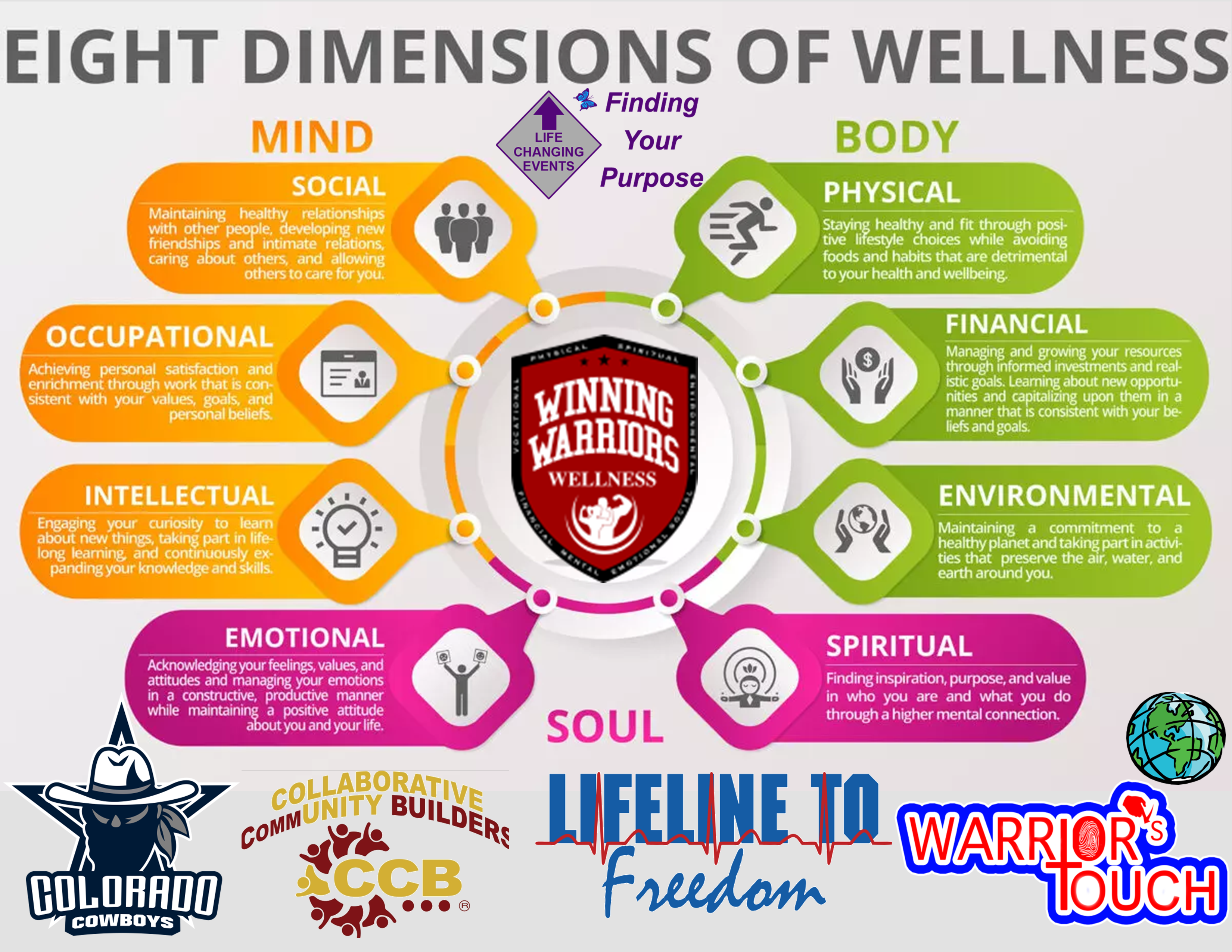Holistic Pillars
Holistic health and wellness encompasses a comprehensive approach to well-being, extending beyond mere absence of illness. It acknowledges that our overall health is influenced by multiple interconnected factors. These eight pillars form the foundation of holistic wellness:
Spiritual
Spirituality doesn’t necessarily relate to religion. It’s about finding purpose, inner peace, and connection. Consider practices such as:
- Meditation: Reflect and connect with your inner self.
- Nature: Spend time outdoors and appreciate natural beauty.
- Values: Align your actions with your core beliefs.
Social
Social connections significantly impact our health. Prioritize building and maintaining meaningful relationships:
- Community: Engage in social activities, join clubs, or volunteer.
- Communication: Active listening and effective communication enhance relationships.
- Boundaries: Set healthy boundaries to maintain balance.
Emotional (Mental Health)
Emotional well-being involves understanding and managing your emotions effectively. Here are some strategies:
- Self-awareness: Recognize your feelings and their triggers.
- Stress management: Practice relaxation techniques, mindfulness, or meditation.
- Social support: Connect with loved ones and seek professional help when needed.
- Resilience: Cultivate coping skills to bounce back from challenges.
Intellectual (Mental Health)
Intellectual wellness involves stimulating your mind and continuously learning. Explore these avenues:
- Curiosity: Stay curious and explore new topics.
- Reading: Read books, articles, or research papers.
- Creativity: Engage in creative pursuits like writing, painting, or playing an instrument.
Physical
Physical wellness encompasses more than just exercise. It involves maintaining a healthy body through regular physical activity, proper nutrition, and adequate rest. Regular exercise not only strengthens muscles and improves cardiovascular health but also positively impacts mental well-being. Prioritize activities you enjoy, whether it’s jogging, dancing, or practicing yoga. Additionally, pay attention to your sleep patterns—quality sleep is essential for overall health.
Financial
Financial stability contributes to overall well-being. Consider these aspects:
- Budgeting: Create a budget to manage income and expenses.
- Savings: Prioritize saving for emergencies and future goals.
- Debt management: Minimize debt and seek financial advice if needed.
Occupational
Occupational wellness refers to finding satisfaction and fulfillment in your work or chosen profession. Consider the following aspects:
- Work-Life Balance: Strive for equilibrium between work responsibilities and personal life. Allocate time for relaxation, hobbies, and spending quality moments with loved ones.
- Job Satisfaction: Engage in work that aligns with your values, interests, and skills. Seek opportunities for growth and development.
- Stress Management: Manage workplace stress effectively. Techniques like time management, delegation, and setting realistic goals can contribute to occupational well-being.
- Healthy Environment: Advocate for a safe and supportive work environment. Address any concerns related to physical or emotional well-being at work.
Environmental
Our surroundings impact health. Consider the following:
- Nature: Spend time in green spaces, parks, or gardens.
- Sustainability: Make eco-friendly choices to protect the environment.
- Air and Water Quality: Advocate for clean air and safe drinking water. Be aware of pollution levels and take steps to minimize exposure.
-
Physical Environment: Create a harmonious living and working space. Declutter, organize, and personalize your surroundings to promote a sense of calm.

Contact Us
Phone
(720) 550-8650
Address
15403 E 17th St., Unit A, Aurora, CO 80011
Lifechangingeventsltf@gmail.com
